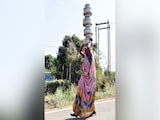Epigenetic clocks, which measure biological age based on modifications to our genetic code, might not be as accurate as previously thought due to daily fluctuations, according to new research.
The study, published in Ageing Cell, found that these epigenetic changes can vary throughout the day, with cells appearing younger in the early morning and older around midday.
Researchers from Vilnius University in Lithuania analysed blood samples from a single individual, taken every three hours over a 72-hour period. They examined 17 different epigenetic clocks within the white blood cells and found that thirteen exhibited significant daily variations. These variations were substantial, with cells appearing 5.5 years younger in the morning compared to midday.
"The majority of the ageing studies investigating epigenetic clocks use whole blood as the tissue of interest. However, experiments in our lab and from other groups have shown that white blood cell subtype counts and their proportions oscillate with a 24-hour periodicity," statistician Karolis Koncevicius from Vilnius University and colleagues write in their published paper.
"Our findings indicate that age predictions of epigenetic clocks oscillate throughout the day," the authors write. "Failure to account for daily oscillations may hamper estimates of epigenetic age."
The study highlights the potential limitations of using single-timepoint epigenetic tests, which may not capture the complete picture of cellular aging. The researchers suggest that future studies consider collecting samples multiple times throughout the day to obtain a more accurate assessment of biological age. This approach could also lead to more precise predictions about the risk of age-related diseases.















